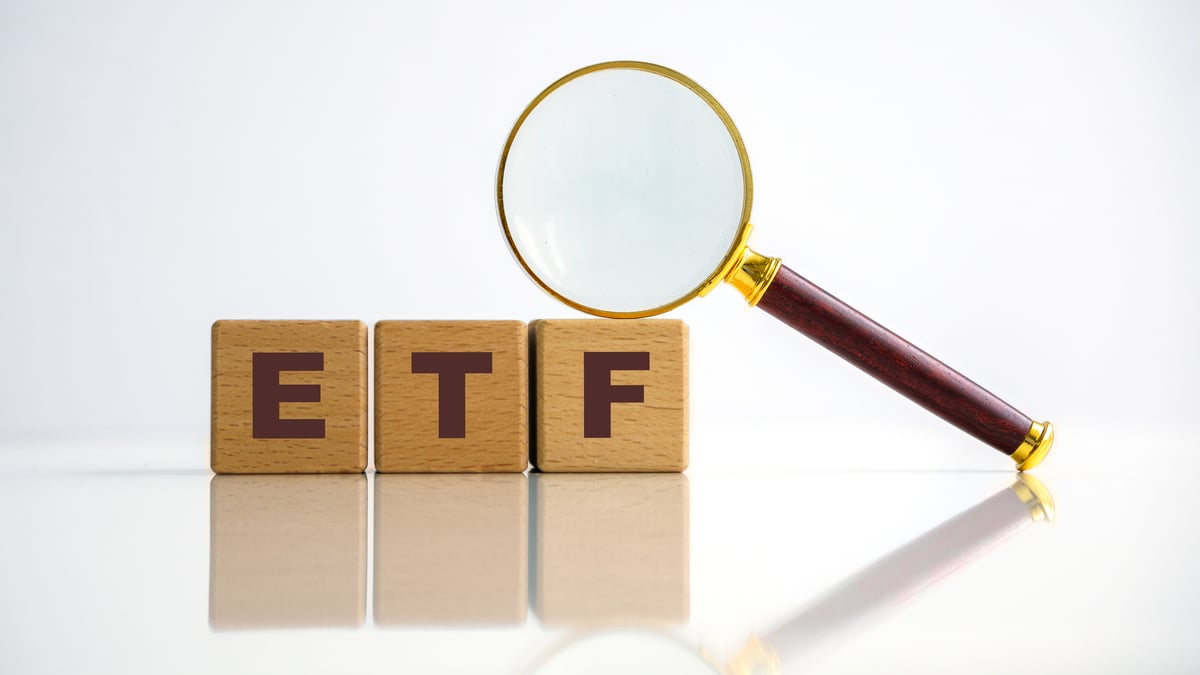Roughly 30 years ago, the proliferation of the internet began changing Wall Street forever. While institutional investors had relied on internet-based trading for years, the ability for everyday investors to access online trading platforms, as well as find pertinent news and financial information with the click of a button, was revolutionary.
Although institutional investing still accounts for the majority of average daily trading volume on Wall Street (primarily due to high-frequency trading programs), retail investors have played an increasingly larger role over time. Based on data from "The Retail Investor Report," compiled by five authors, retail investors accounted for 25% of total equities trading volume in 2021, which nearly doubled from where things stood a decade earlier.

Image source: Getty Images.
Online brokerages have taken note of this trend and done what they can to cater to everyday investors. Robinhood has been among the most successful at signing up the retail crowd, with investors flocking to the company for its commission-free trades and ability to buy fractional shares.
But what makes Robinhood's platform especially unique is its "100 Most Popular" tool, which allows anyone to see which stocks and exchange-traded funds (ETFs) are held most frequently within customers' portfolios.
It just so happens that the most widely held ETF on Robinhood, the Vanguard S&P 500 ETF (VOO 0.47%) -- which has rallied 632%, including dividends paid, since its inception nearly 15 years ago -- is the only general investment that billionaire Warren Buffett has recommended for everyday investors.
Billionaire Warren Buffett doesn't give specific investment advice -- but has made one exception
The Oracle of Omaha's investing prowess at Berkshire Hathaway (BRK.A +2.40%)(BRK.B +2.04%) has been well documented. Since taking the role as CEO 60 years ago, Warren Buffett has overseen a cumulative return in his company's Class A shares (BRK.A) of nearly 5,900,000%, which has absolutely crushed the total return, including dividends, of the benchmark S&P 500 (^GSPC 0.51%).
In addition to mirroring Warren Buffett's buying and selling activity, which can be done by tracking his trades via quarterly filed Form 13Fs, investors aim to emulate his investment traits. This includes buying for the long term and investing in companies with sustainable moats and strong management teams.
But if there's one thing Warren Buffett doesn't do, it's offer specific investment advice. While he frequently speaks glowingly about the core stocks Berkshire Hathaway already holds in its investment portfolio, the Oracle of Omaha doesn't tell retail investors what they should be doing with their money...with one exception.

NYSE: BRK.B
Key Data Points
On May 2, 2020, shortly after the COVID-19 pandemic broke out and sent Wall Street's major stock indexes plummeting, Berkshire Hathaway held a virtual annual meeting for shareholders. While Buffett tackled an assortment of topics, he also offered up a direct investment recommendation to retail investors:
In my view, for most people, the best thing to do is to own the S&P 500 index fund. ... You're dealing with something fundamentally advantageous, in my view, in owning stocks. I will bet on America the rest of my life.
Being a long-term investor, Buffett is well aware of the disproportionate nature of economic and stock market cycles -- and he's angled Berkshire Hathaway to take advantage of this nonlinearity.
For example, the U.S. economy has endured 12 recessions since the end of World War II in September 1945. The average economic downturn has resolved in just 10 months, with no recession lasting longer than 18 months. In comparison, the average period of economic growth has endured for about five years. Long-winded periods of growth bode well for corporate America.
Likewise, bull markets last substantially longer than bear markets. A June 2023 data set published by Bespoke Investment Group on X (formerly Twitter) found the average S&P 500 bear market since the start of the Great Depression lasted 286 calendar days (roughly 9.5 months). Meanwhile, the typical bull market stuck around for 1,011 calendar days, or two years and nine months. Buffett realized a long time ago that being an optimist is a moneymaking decision.

Image source: Getty Images.
The Vanguard S&P 500 ETF is in a class of its own
Though individual stocks account for the top five holdings on Robinhood, led by electric vehicle maker Tesla, the Vanguard S&P 500 ETF is the most held ETF and the sixth-most held security on the platform.
While Berkshire Hathaway CEO Warren Buffett didn't single out any specific S&P 500 index funds when suggesting that everyday investors own an S&P 500 index fund, the Vanguard S&P 500 ETF tends to be in a class of its own.
As of this writing, there are roughly two dozen ETFs to choose from that attempt to mirror the performance of Wall Street's benchmark stock index. In other words, these funds are purchasing all 503 components (three S&P 500 companies have two classes of shares, thus why there are 503 components and not an even 500) and attempting to mirror their weightings to match the S&P 500's performance as closely as possible.
The two most popular S&P 500 index funds are the SPDR S&P 500 ETF Trust (SPY 0.48%), which was the first ETF to be launched in the U.S. (in 1993), and the Vanguard S&P 500 ETF, which launched in September 2010. While both index funds do a fine job of mirroring the returns of the benchmark index, there is one notable difference between the two: their net expense ratios.
VOO Total Return Level data by YCharts. Total return data from inception on Sept. 7, 2010, through June 26, 2025.
A fund's net expense ratio represents the amount of your investment that you'll pay in various fees, such as those for managing and marketing the fund, among other expenses. Whereas the SPDR S&P 500 ETF Trust has a relatively low net expense ratio of 0.09%, the Vanguard S&P 500 ETF has a microscopic net expense ratio of 0.03%.
Though we're only talking about a six-basis-point difference, it can add up over multiple decades or be significant if you're dealing with a large initial investment. Hypothetically, if you invested $1,000,000 in the SPDR S&P 500 ETF Trust and S&P 500 Vanguard ETF and allowed your investment to grow undisturbed for 30 years with an estimated average annual return of 8%, you'd pay $248,550 in fees with the SPDR S&P 500 ETF Trust and just $83,519 in fees with the S&P 500 Vanguard ETF. This isn't a negligible difference.
Robinhood's retail investors have wisely piled into a time-tested, low-cost ETF that Berkshire Hathaway's billionaire CEO (in a general sense) believes everyday investors can comfortably own over the long run.










